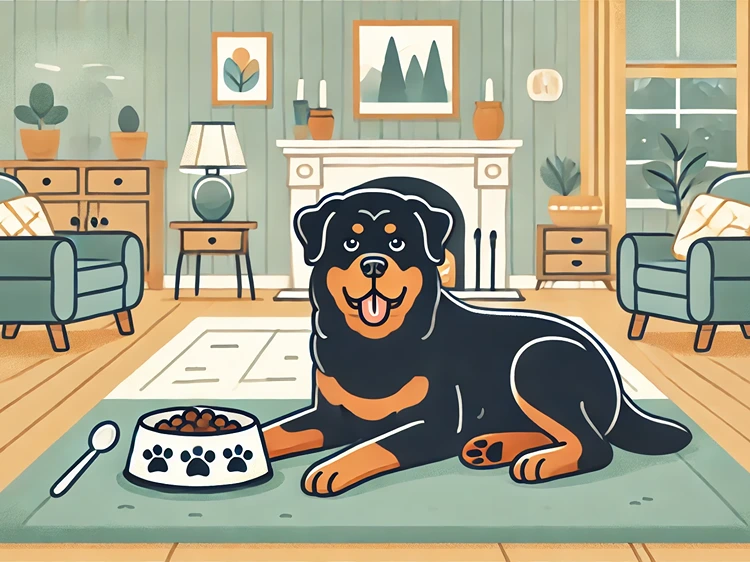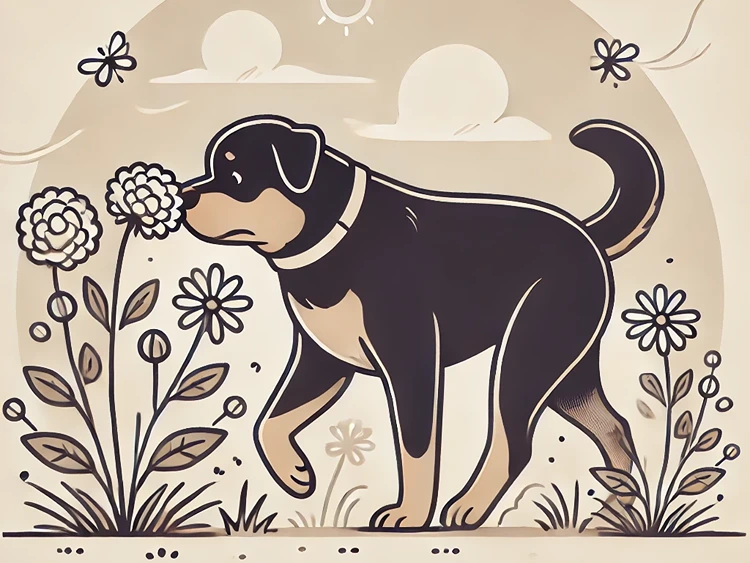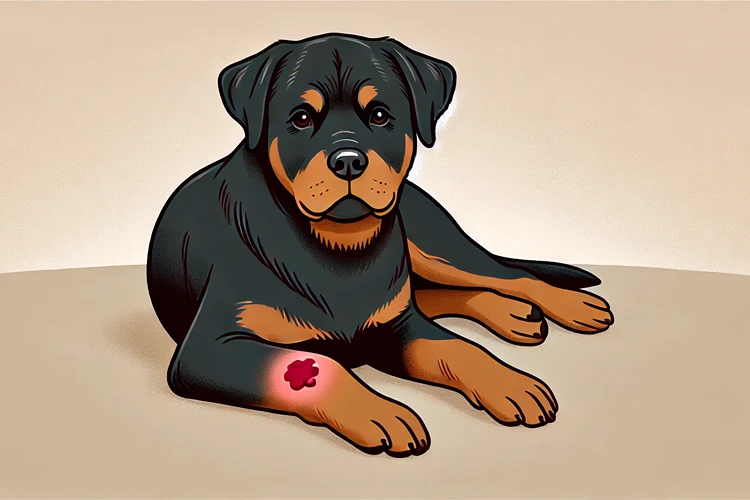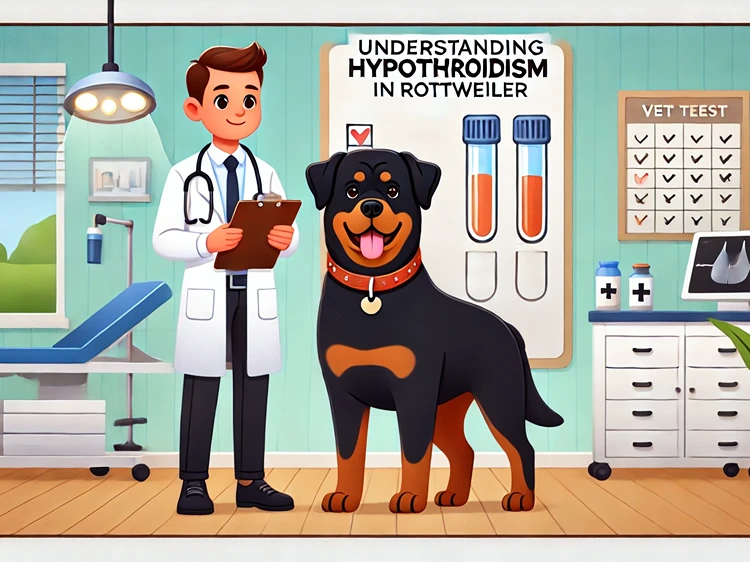Rottweilers are powerful, loyal, and intelligent dogs that thrive on a diet tailored to their specific needs. Whether you’re raising a playful puppy, managing the health of an adult Rottie, or ensuring a senior Rottweiler enjoys a comfortable life, understanding the best diet for Rottweilers is essential. In this guide, we’ll explore the nutritional requirements for Rottweilers at every stage of their life, helping you make informed decisions to keep your beloved companion healthy and happy.
Why Rottweiler Diet Matters
The diet of a Rottweiler plays a crucial role in their overall health and well-being. Rottweilers have unique nutritional needs due to their size, energy levels, and predisposition to certain health conditions. Providing the best diet for Rottweilers can prevent obesity, promote strong bones and muscles, and support a healthy immune system. Inadequate nutrition can lead to various health issues, including joint problems, heart disease, and digestive disorders.
Paw-some Tip:
To maintain your Rottweiler’s health, always monitor their weight and adjust their diet accordingly. Obesity is a common issue in Rottweilers, so keep portion sizes in check and ensure they get regular exercise.
What Are the Nutritional Needs of Rottweiler Puppies?
Rottweiler puppies grow rapidly during their first year, which means they need a diet rich in high-quality proteins, fats, and essential nutrients. The best diet for Rottweiler puppies includes a balanced mix of proteins for muscle development, fats for energy, and calcium and phosphorus for bone growth. It’s crucial to choose a puppy food that supports their development without causing them to grow too quickly, as this can lead to joint issues later in life.
- Protein: Look for puppy food with at least 22% protein content. This supports the development of strong muscles and overall growth.
- Fat: Ensure the diet has around 8% fat to provide the energy needed for your puppy’s active lifestyle.
- Calcium and Phosphorus: The ideal ratio of calcium to phosphorus should be about 1.2:1 to support healthy bone development.
Rottie Stats:
Puppies grow rapidly in the first 12 months, often reaching 70-80% of their adult size within this period. Proper nutrition is key to supporting healthy growth without overloading their joints.
Should You Feed Rottweiler Puppies Grain-Free Diets?
Grain-free diets have become popular, but are they necessary for Rottweiler puppies? While some puppies may benefit from grain-free food due to allergies or sensitivities, most Rottweiler puppies thrive on a diet that includes whole grains like brown rice and oats. These grains provide essential nutrients and fiber that support healthy digestion. If you choose a grain-free diet, ensure it’s balanced and includes alternative sources of carbohydrates like sweet potatoes or peas.
How to Meet the Nutritional Needs of Adult Rottweilers
As Rottweilers transition from puppyhood to adulthood, their nutritional needs change. The best diet for adult Rottweilers focuses on maintaining a healthy weight, supporting muscle mass, and preventing common health issues like joint problems and heart disease. An adult Rottweiler’s diet should be well-balanced, with high-quality proteins, moderate fats, and the right mix of vitamins and minerals.
- Protein: Adult Rottweilers benefit from a diet with 18-22% protein content, which helps maintain lean muscle mass.
- Fat: A fat content of 5-8% is ideal for providing energy without contributing to weight gain.
- Fiber: Include 3-5% fiber in the diet to support healthy digestion and prevent constipation.
Should You Feed Adult Rottweilers a Raw Diet?
Raw diets, also known as BARF (Biologically Appropriate Raw Food), have gained popularity among dog owners. But is it the best diet for Rottweilers? While some Rottweilers thrive on raw diets, others may struggle with the high fat content or risk of bacterial contamination. If you choose to feed a raw diet, ensure it’s well-balanced and consult with a veterinarian or canine nutritionist to ensure your Rottweiler receives all the essential nutrients.
Paw-some Tip:
If you decide to switch your Rottweiler to a raw diet, introduce new foods gradually to avoid digestive upsets. Monitor their health closely and adjust the diet as needed.
Rottweiler Caloric Needs by Life Stage
| Life Stage | Average Weight (lbs) | Caloric Needs (per day) |
|---|---|---|
| Puppy (0-12 months) | 15-75 lbs | 800-2200 calories |
| Adult (1-6 years) | 80-135 lbs | 1600-2500 calories |
| Senior (7+ years) | 80-135 lbs | 1300-2100 calories |
What Is the Best Diet for Senior Rottweilers?
As Rottweilers age, their metabolism slows down, and they may become less active. The best diet for senior Rottweilers is lower in calories to prevent weight gain while still providing the nutrients needed to support joint health, immune function, and overall vitality. Senior Rottweilers may also benefit from diets that include supplements like glucosamine and chondroitin to support joint health.
- Protein: Senior Rottweilers still need adequate protein to maintain muscle mass, so aim for 18-20% protein content.
- Fat: Lower the fat content to around 5-6% to prevent unnecessary weight gain.
- Fiber: Increase fiber intake to 5-7% to aid digestion and maintain regular bowel movements.
- Joint Supplements: Look for senior dog foods that include glucosamine and chondroitin to support joint health.
Are Supplements Necessary for Senior Rottweilers?
As Rottweilers age, they may require additional support for their joints, skin, and overall health. While a balanced diet provides many essential nutrients, supplements can help address specific issues. Omega-3 fatty acids, for example, can help reduce inflammation and support healthy skin and coat, while probiotics can promote healthy digestion.
Paw-some Tip:
Consult with your veterinarian before adding supplements to your senior Rottweiler’s diet. They can help determine the right supplements and dosages based on your dog’s individual needs.
How Often Should You Feed Your Rottweiler?
Understanding how often to feed your Rottweiler is as important as knowing what to feed them. Feeding frequency can vary depending on their age, size, and activity level. While puppies may require multiple meals throughout the day, adult and senior Rottweilers may thrive on fewer, larger meals. Here’s a breakdown of feeding schedules for Rottweilers at different life stages.
Feeding Frequency for Rottweiler Puppies
Rottweiler puppies have high energy needs due to their rapid growth and development. To keep their energy levels stable and support healthy growth, it’s best to divide their daily food intake into three to four small meals. This frequent feeding schedule helps prevent issues like hypoglycemia, which can occur if a puppy’s blood sugar levels drop too low between meals.
- 8-12 Weeks Old: Feed 4 meals per day.
- 3-6 Months Old: Feed 3 meals per day.
- 6-12 Months Old: Transition to 2-3 meals per day.
Feeding Frequency for Adult Rottweilers
Adult Rottweilers typically require fewer meals than puppies, as their growth rate has slowed, and they have more stable energy levels. Most adult Rottweilers do well with two meals per day, spaced out to maintain consistent energy and prevent overeating. This schedule also helps manage their weight, reducing the risk of obesity, which is common in large breeds.
- 1-6 Years Old: Feed 2 meals per day.
Feeding Frequency for Senior Rottweilers
Senior Rottweilers often have reduced activity levels and slower metabolism, so it’s important to adjust their feeding schedule accordingly. While two meals per day are usually sufficient, some senior dogs may benefit from smaller, more frequent meals, especially if they have difficulty digesting larger portions. This approach can also help manage weight and reduce the risk of digestive issues.
- 7 Years and Older: Feed 2 meals per day, or consider 3 smaller meals if needed.
Rottie Stats:
Over 50% of dogs in the U.S. are overweight or obese, making portion control and feeding frequency crucial to your Rottweiler’s health. Regular feeding schedules help maintain a healthy weight and prevent obesity-related health issues.
How to Choose the Best Dog Food for Rottweilers
With so many dog food options on the market, choosing the best food for your Rottweiler can be overwhelming. Whether you prefer kibble, canned food, or homemade meals, it’s important to select a food that meets your Rottweiler’s nutritional needs. Here’s how to evaluate your options and make the best choice for your Rottie.
What Should You Look for in Commercial Dog Food?
When selecting commercial dog food, whether it’s kibble or canned, you’ll want to focus on high-quality ingredients and a balanced nutrient profile. Look for dog foods that list real meat as the first ingredient, avoid fillers like corn and soy, and ensure the food contains essential vitamins and minerals.
- Real Meat as the First Ingredient: Whether it’s chicken, beef, or lamb, real meat should be the primary protein source.
- Avoid Fillers: Steer clear of foods that use corn, soy, or by-products as primary ingredients.
- Complete and Balanced: Ensure the food meets AAFCO (Association of American Feed Control Officials) standards for complete and balanced nutrition.
Paw-some Tip:
When transitioning to a new dog food, do it gradually over 7-10 days. Start by mixing a small amount of the new food with your Rottweiler’s current food, gradually increasing the proportion of new food each day.
Is Homemade Dog Food a Good Option for Rottweilers?
Some Rottweiler owners prefer to prepare homemade meals for their dogs to have more control over the ingredients. While this can be a great option, it’s important to ensure the diet is well-balanced. Homemade dog food should include a proper ratio of proteins, carbohydrates, and fats, along with essential vitamins and minerals. Consulting with a veterinarian or canine nutritionist is crucial when creating homemade diets to avoid nutritional deficiencies.
Should You Consider Grain-Free or Limited Ingredient Diets?
Grain-free and limited-ingredient diets have become popular, particularly for dogs with food sensitivities or allergies. However, it’s important to note that not all dogs need grain-free diets, and these should only be chosen if your Rottweiler has specific dietary needs. Grain-inclusive diets can provide beneficial nutrients, and unless your Rottie has a diagnosed grain allergy, there’s no need to avoid grains entirely.
What Are the Common Feeding Mistakes to Avoid?
Even with the best intentions, it’s easy to make feeding mistakes that can impact your Rottweiler’s health. Here are some common pitfalls to watch out for and how to avoid them.
Overfeeding and Obesity
Rottweilers have a strong appetite, and it’s easy to overfeed them, especially if they’re given frequent treats or human food scraps. Overfeeding can quickly lead to obesity, which is a serious health concern in Rottweilers. To avoid this, measure your dog’s food portions carefully and stick to a consistent feeding schedule.
Feeding Inappropriate Foods
Some human foods are toxic to dogs, including Rottweilers. Avoid feeding your Rottweiler foods like chocolate, onions, grapes, and anything containing xylitol. Additionally, be cautious with high-fat foods, as these can lead to pancreatitis, a painful and potentially dangerous condition.
Not Providing Fresh Water
Always ensure your Rottweiler has access to fresh, clean water. Dehydration can lead to serious health issues, especially in active dogs. Change their water daily and clean their water bowl regularly to prevent bacterial growth.
Pros and Cons of Different Diets for Rottweilers
Pros
- Commercial dog foods are convenient and often nutritionally balanced.
- Homemade diets allow for complete control over ingredients, catering to specific health needs.
- Raw diets can lead to improved coat condition and cleaner teeth in some dogs.
Cons
- Commercial dog foods can contain fillers and low-quality ingredients.
- Homemade diets require careful planning to ensure they are nutritionally complete.
- Raw diets pose a risk of bacterial contamination if not handled properly.
FAQs
Wrapping Up
Choosing the best diet for your Rottweiler is key to their long-term health and well-being. By understanding their unique nutritional needs at every stage of life, you can provide the right balance of proteins, fats, vitamins, and minerals to keep them healthy and happy. Whether you’re feeding a playful puppy, a robust adult, or a senior Rottie, the focus on quality ingredients and proper portion control is essential. Remember to consult with your veterinarian regularly to adjust their diet as needed and address any specific health concerns. By prioritizing their diet, you’re ensuring that your Rottweiler enjoys a vibrant, energetic life. For more insights on Rottweiler care, stay tuned to our blog for the latest tips and advice.




